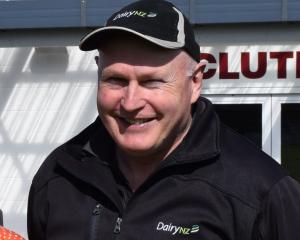Westland Milk Products yesterday posted a before-tax profit of $3.25 million as it tries to claw its way to profitability.
Last year's before-tax profit was just $29,000.
On releasing its annual report yesterday the West Coast farmer-owned co-operative acknowledged it was still not industry competitive and lacked "financial flexibility" due to high debt levels and the need for more working capital.
The $3.25m before-tax profit is partly down to book adjustments, including keeping back 5c for every kilo of the milk payout to farmers for 2017-18.
The $6.07 payout for the past year was up 89c on the previous year, but the company still had to improve the bottom line, chief financial officer Dorian Devers said.
"Although we went some way to closing the gap between Westland's payout and other dairy processors, there is still a gap, meaning our payout is still not competitive," Mr Devers said.
Total liabilities and equity posted in the balance sheet increased by $19m, from $568.3m in 2016-17 to $587.6m in the past financial year.
Total borrowings increased by $21m to $253.8m.
The debt-equity ratio has continued to rise, with equity continuing to decline and now sitting at $123.1m compared to $145.8m in 2016-17.
Total revenue was $692,586,000 for the past year. Of this $386,032,000 was paid to farmers for their milk.
In a statement this morning, board chairman Peter Morrison said the primary focus was to deliver a competitive payout next year and "get the basics right" to improve returns and value to shareholders.
The company also needed to take up the full range of opportunities with its need for more capital, Mr Morrison said.
Shareholders will be given a first progress report on the capital restructure review now under way, at the annual general meeting at Shantytown on December 5, which could see the West Coast co-operative sold off altogether or ownership watered down with a new 'cornerstone' investor to bring new capital aboard.
The company last week announced a further capital works programme for the Hokitika plant but has not revealed how it intends paying for that.
"We have relatively high debt levels and limited financial flexibility," Mr Morrison said in a statement.
The company now needed to "consider all the options" to attain a higher payout and improve financial flexibility.
"Obtaining new capital would make a significant difference," he said.
Chief executive Toni Brendish said Westland Milk was currently forced to process high volumes of milk, but low value bulk milk powders in order to process milk during peak season, due to the bottleneck in milk receiving and storage facilities at Hokitika.
The company had increased its value-add income by $15m, "evidence that segregated, value-add product can produce success," Ms Brendish said.
It had success in sales of goods that were less vulnerable to global commodity price fluctuations. This included a 50.4% increase in sales of Westgold butter, with 3 million blocks sold in New Zealand in three years, UHT sales of 6.045 million litres compared to 1.024 million litres the previous year, and nutritional milk product sales up 4543 metric tonnes to 15,263 tonnes.
- by Brendon McMahon















